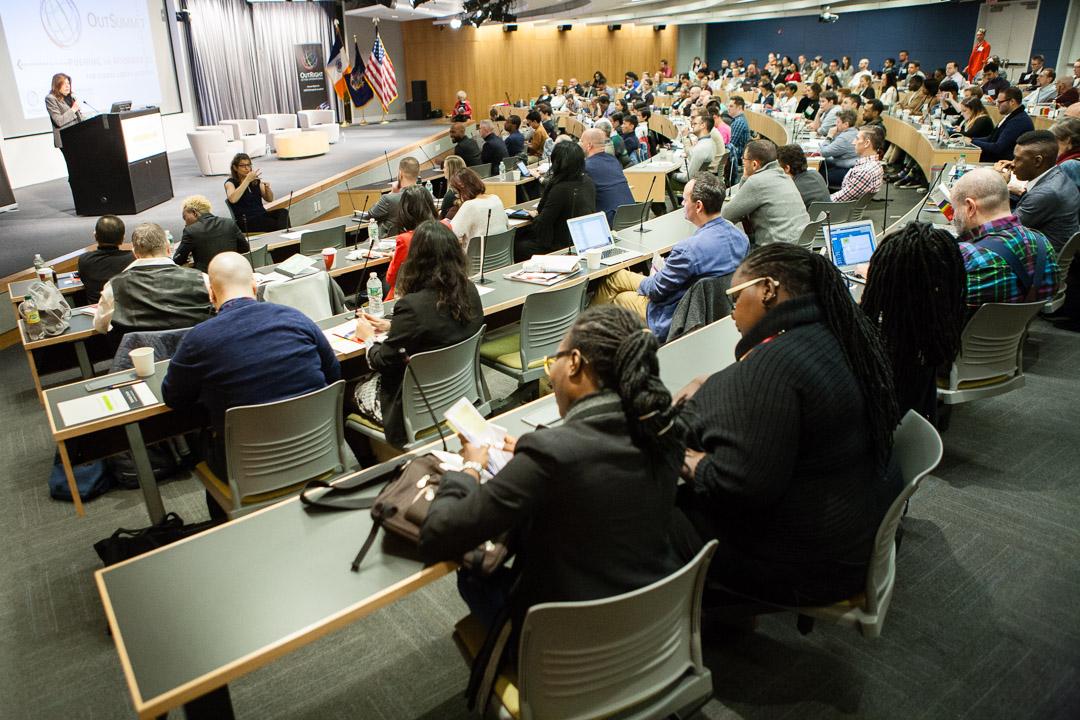
Press Release
Ghana’s Anti-LGBTQ Bill Clears Supreme Court Hurdle, Threatening Lives
New York, New York - December 18, 2024 - Ghana’s Supreme Court has dismissed a bid to declare the Human Sexual Rights and Family Values Bill unconstitutional. The ruling clears the way for the enactment of one of the most draconian anti-LGBTQ laws in the world.
The law, passed by Ghana’s parliament in February and pending presidential assent, takes the preposterous, extreme, and internationally unprecedented step of criminalizing simply being what the law refers to as an “LGBTTQAP+” person, defined as “a person who holds out as a lesbian, a gay, a bisexual, a transgender, a transsexual, a queer, an ally, a pansexual, or any other sexual identity that is contrary to the binary categories of male and female” with penalties of up to three years in prison. An earlier version of the bill also criminalized intersex people, who already face severe stigma in Ghana. Under other provisions of the bill, those who fail to report their sexual orientation or that of others also face criminal penalties, requiring medical professionals, development and humanitarian organizations, corporations, and others to violate their own ethical standards to comply with the law. The law also bans any effort to change public opinion on LGBTQ issues, impacting not only sexual and gender minorities but anyone who stands up for their rights.
The court ruled that it would be premature to exercise its interpretive and enforcement jurisdiction to intervene. Judge Avril Lovelace-Johnson added, “Until there is presidential assent to the bill, there is no act of which the Supreme Court will use its supervisory jurisdiction to overturn. Consequently, the action fails.”
The ruling leaves it to outgoing President Nana Akufo-Addo to decide whether to formally receive the bill in the final three weeks of his term. Then, he can either sign it into law or leave the decision in the hands of incoming president John Dramini Mahama, who takes office on 7 January.
The introduction of the bill has exacerbated anti-LGBTQ attitudes in Ghana, leading to increased violent attacks and intimidation against people perceived to be sexual or gender minorities. Outright has documented how the bill has already contributed to mob attacks, physical violence, arbitrary arrests, blackmail, online harassment, verbal harassment, gang rape and other acts of sexual violence, conversion practices, forced evictions, homelessness, employment discrimination, and robbery. The bill seeks to divide families and communities, creating a hostile environment for LGBTQ individuals and their allies.
The ruling comes months after the Supreme Court of Ghana upheld a longstanding colonial-era law that criminalizes adult consensual same-sex conduct. Under Section 104 of the Penal Code, anal sex, referred to as “unnatural carnal knowledge,” is punished with three years’ imprisonment. In July 2024, Ghana’s Supreme Court dismissed a constitutional challenge against Section 104, with legal arguments couched in claims around the country’s “unique traditional and cultural identity” and the rejection of “alien cultural values.”
Quote from Maria Sjödin
“As Ghana transitions to a new administration, it is crucial for leaders to prioritize human rights as a foundation for societal progress. This bill, which forces individuals to report those known or suspected to be LGBTQ and prohibits anyone from identifying as an ally, is profoundly harmful. It promotes fear, erodes trust within communities, and targets not just LGBTQ people but anyone advocating for equality and inclusion. Such measures could undermine Ghana’s potential for sustainable growth and prosperity. We urge President Akufo-Addo and President-elect Mahama to use this moment as an opportunity to champion human rights rather than perpetuate discrimination and harm,”
In the leadup to Ghana’s December general elections, candidates tapped into and fomented anti-LGBTQ sentiment in the country. The election campaign emboldened religious groups and other political leaders to express strong opposition to human rights for LGBTQ people. Mahama, who won 56% of the presidential election votes, played down the dangerous legislation as “not an anti-LG… bill, it’s a family values bill.” Mahama has taken a cautious stance on whether he will sign the bill into law.
In March this year, Ghana’s Finance Ministry issued a warning that the legislation posed alarming economic risks. The ministry said that it could threaten $3.8 billion in World Bank funding allocated over six years and told President Akufo-Addo that endorsing the bill would impact the country's overall development.
The advancement of the bill in Ghana accompanies other threats to LGBTQ communities worldwide. Outright International condemns the recent enactment of anti-LGBTQ bills in Bulgaria, Georgia, Mali, Gambia, and other nations. These regressive legislative measures not only infringe upon fundamental human rights but also perpetuate discrimination, exclusion, and violence against marginalized communities. We urgently call upon these governments to honor their international human rights obligations, reject the promotion and enactment of discriminatory laws, and uphold fairness, dignity, and inclusion for minorities, including LGBTQ people.

Read Our Publications
Since 1990, we have partnered with activists from all over the world to produce hundreds of groundbreaking reports.
Learn More